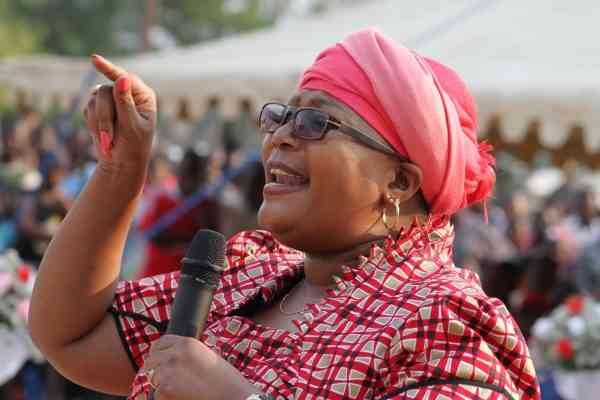
WOMEN’S participation in Zimbabwe's political sphere remains a critical issue, as they continue to face significant hurdles in securing a firm foothold in politics.
This is despite women comprising over half of the electorate. The deeply patriarchal nature of society, coupled with challenges such as violence, intimidation, negative perceptions, and limited access to resources, has created an uphill battle for women striving for political inclusivity.
This reality was underscored by former deputy prime minister and senator Thokozani Khupe at the recent launch of the documentary History of Women’s Political Participation in Zimbabwe, held in Harare.
Khupe said one of the biggest obstacles to women’s political participation in Zimbabwe was the lack of support from fellow women, perpetuating the belief that “women are their own worst enemies”.
“Women are enemies to their own progress; they do not believe in themselves, let alone in the capabilities of fellow women,” Khupe remarked.
Reflecting on her own experiences, she recounted the hostility she faced after the death of MDC-T leader Morgan Tsvangirai.
She said despite being the most qualified candidate constitutionally and within the party’s hierarchy, she was disqualified from leading the party, primarily due to her gender.
Khupe described the emotional and physical abuse she endured, much of it instigated by fellow women.
- SRC welcomes Fifa decision on Zhoya
- Letters: Women representation faces hurdles
- Letters to the editor: Misgovernance bleeding our nation
- MPs exchange notes on fighting child marriages
Keep Reading
“The reason I am still standing here today is because I am a woman and women are supposed to be strong, I absorbed shock absorbers,” she said.
“There are no women in this country who had endured assaults that I did.
“Men called me all names one can think of, women would rather nominate men they did not even know their identities just to get rid of me, reason being a woman.
“I am a fighter, I am still fighting, even cancer will not win against me because women always win,” Khupe added.
Speaking at the same event, women’s rights advocate, war veteran, and former legislator Margaret Dongo called on the Zimbabwean government to prioritise women in leadership for the nation’s socio-economic advancement.
“Women have always been capable leaders,” Dongo stated. “We cannot continue getting handouts from men through quota systems as if we are not equal.
“I joined the liberation war at 15, performing duties equal to those of men. What men can do, women can also do. There is no justification for men to occupy all seats and ministerial posts in this country. It’s high time we demanded equal opportunities in leadership and governance.”
The event, hosted by the Friedrich Naumann Foundation for Freedom, brought together prominent women leaders from various sectors to highlight the strength of female leadership and collaboration.
Chief executive of the Zimbabwe Gender Commission Virginia Muwanigwa emphasised the importance of establishing a supportive legal and policy framework, noting that while Section 56 of Zimbabwe’s Constitution guarantees women’s right to vote and contest elections, practical barriers remain.
“To truly empower women in Zimbabwean politics, societal attitudes must change. Women must be viewed as equals, and their participation in politics supported and encouraged. By addressing the challenges, Zimbabwe can move towards a more equitable political landscape,” she said.
Globally, women hold only 23,3% of cabinet positions and 26,9% of parliamentary seats.
Despite these disparities, the consensus at the event was clear: Increasing women’s leadership in politics can lead to improved policy outcomes, such as better childcare coverage and stronger representation of women’s interests.
The documentary launch served as a rallying cry for Zimbabwean women to embrace their potential and fight for space in the political arena, not as beneficiaries of tokenism but as equal partners shaping the nation’s future.










